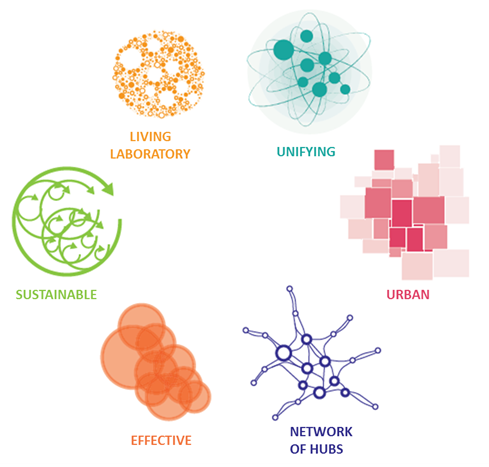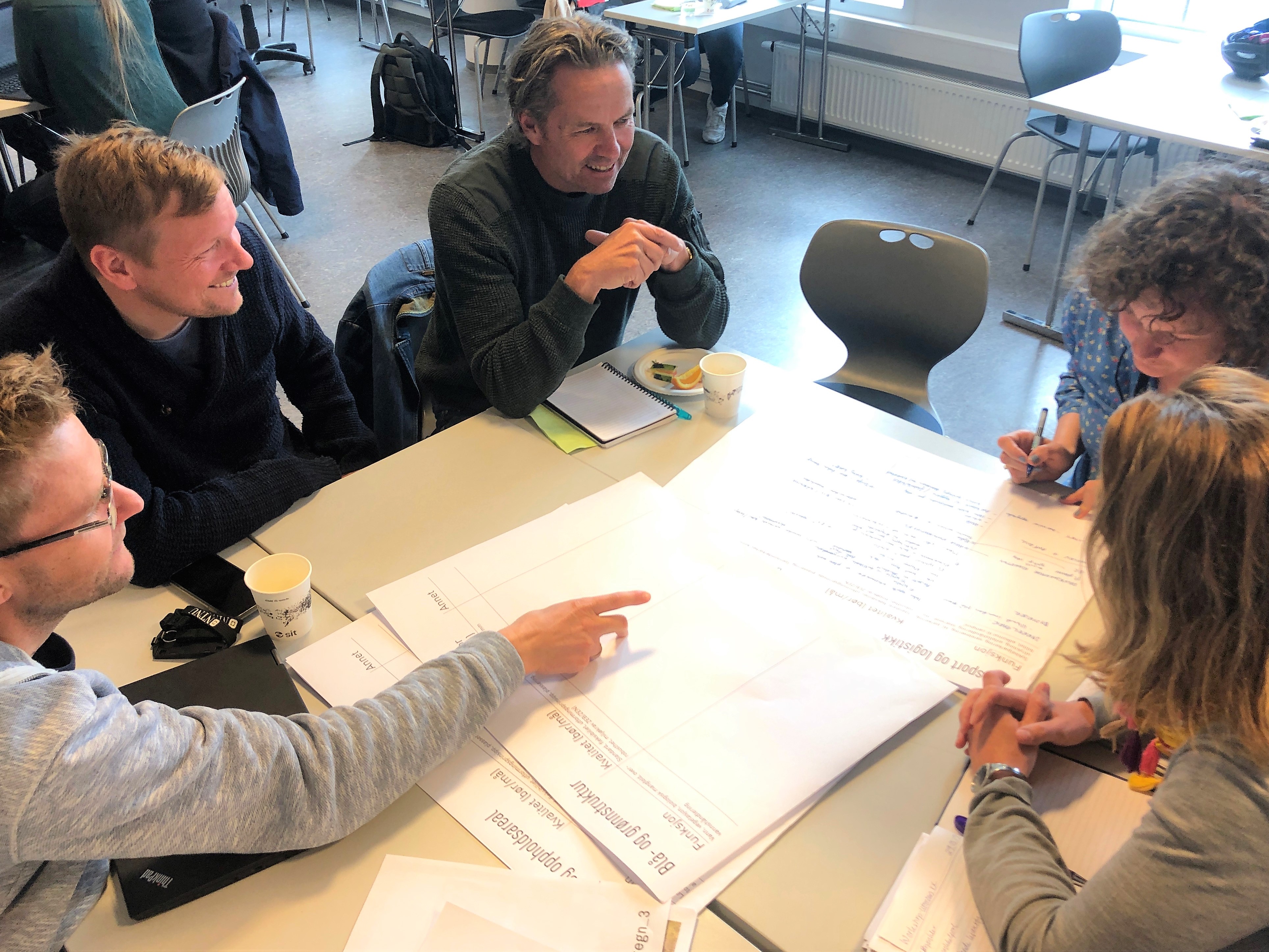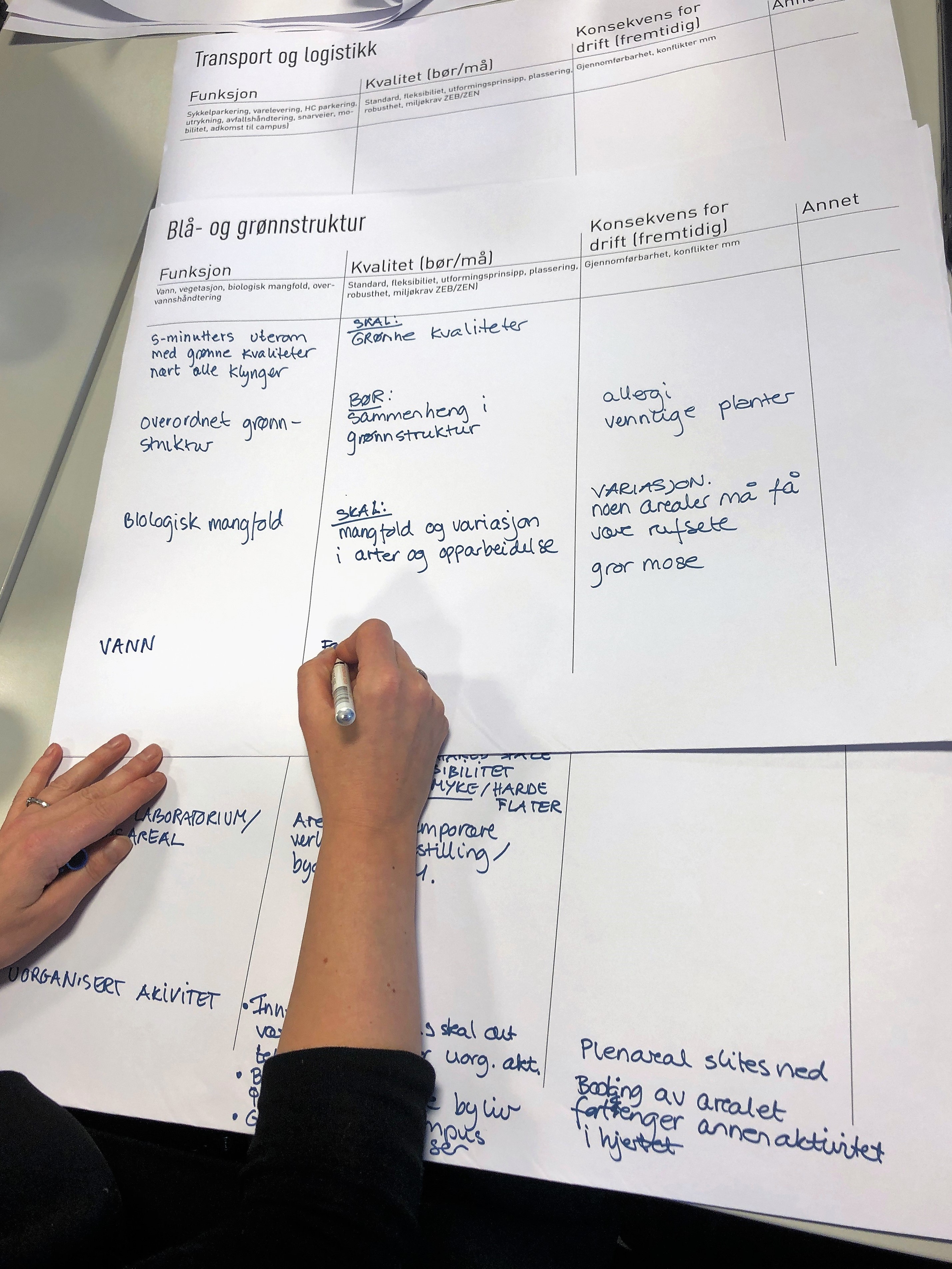Aim
Goals and guidelines
Goals and guidelines
..to create new perspectives for long-term, basic research and for the education of outstanding candidates is NTNU's societal goal and is guiding for the entire university's activities. NTNU's campus will facilitate the exercise of the social mission and is one of several means of achieving NTNU's goals.
The Government's guidelines
Based om The Long-term Plan for Research and Higher Education (Report St. 4 (2018–2019), the Ministry of Education expects the university and college sector to consider building as an input factor on a par with other resources in research and higher education and considers the need for development and maintenance.
The plan for the development, management and prioritization of university and college buildings is the campus with buildings, equipment and other infrastructure referred to as basic input factors for achieving the overall goals of the research and education policy. Decisions on university and college building form where and how students, academic staff and other knowledge workers live, learn, study, innovate and communicate. Although a campus can be an independent entity, it will depend on and influence the community it is part of (Chapter 8.1 Need for well-designed university and college buildings).
Campus as a strategic tool
The main task at NTNU's campus development is to ensure that NTNU's campus becomes a strategic tool for realizing academic ambitions and facilitating the development of NTNU's core tasks in education and learning environment, research, art, innovation, innovation and dissemination. Campus collection is an important driver in this, and quality requirements for buildings and outdoors become prime criteria here.
The societal goal for a unified campus: NTNU shall have a robust and flexible physical infrastructure that provides good conditions for NTNU's ability to fulfill its social mission and be an attractive educational and research institution at an outstanding international level.
The physical framework in campus will provide better conditions for internationally outstanding teaching, research, art, innovation and dissemination. Good meeting places, forward-looking spaces for work and learning and the realization of NTNU's campus as a development arena and a living laboratory will contribute to this.
Quality program and quality principles

NTNU has decided an overall Quality Program that defines which qualities campus must have in order to help NTNU reach its goals. The quality program sets out six principles that describe the characteristics and qualities the campus must have in order to fulfill the vision:
- Campus NTNU provides a physical framework for internationally outstanding teaching, research, innovation and dissemination.
- Campus NTNU attracts the most talented students, employees and partners. The quality requirements must contribute to the campus NTNU achieving these qualities.
The quality requirements must thus contribute to a campus development that supports societal goals as also described in the supplementary study and in the OFP report (Start-up pre-project) to the co-location of campus.
Quality requirements in the campus development plan
Together with professional localization, land surveying and physical planning, NTNU's quality requirements for building and outdoor use are one of NTNU's campus development plans.
The Campus Development Plan is a compilation of strategies, processes and measures that are implemented to ensure that campus becomes a strategic tool for realizing academic ambitions and facilitating the continuous development of NTNU's core tasks.
From workshop 2

From workshop 2

